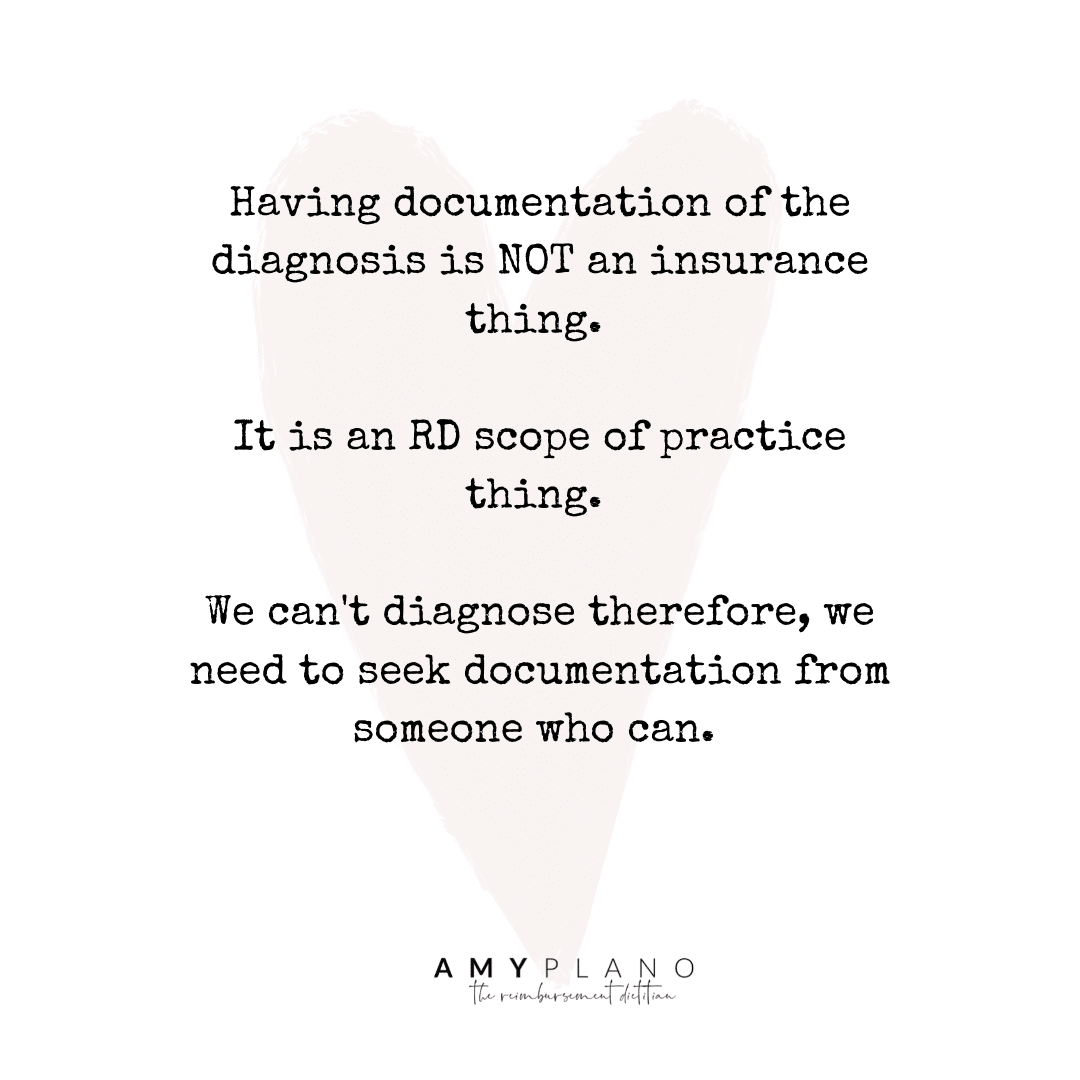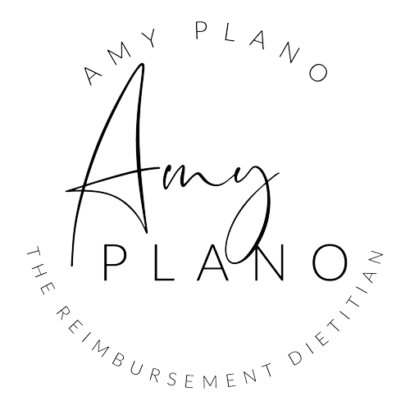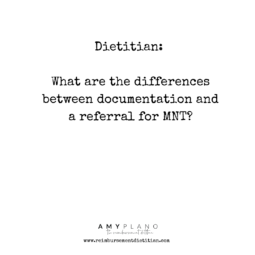Today I want to talk to you about the differences between getting documentation for using specific ICD 10 codes and needing an insurance referral for MNT.
Since I originally wrote this blog in 2021 I have since recorded a video that supports this information. Click below to watch the video version or continue reading if you prefer print.
If you are in my group coaching program, then you already received the smackdown on this. But if I have not had the privilege of coaching you I still want you to have the 411 as well. After all, you know I would NEVER leave a sista’ hanging!
So, what is the DIFFERENCE between ‘documentation‘ and ‘referrals for MNT‘ as they relate to insurance billing for dietitians?

Documentation, what gives?
Anytime we plan to use a medical code (say diabetes, renal disease, celiac disease) we need documentation from a health care professional who can diagnose. Either an MD, APRN, PA, DO or therapist are common providers who can diagnose. We can’t!
Even if we know for a fact that our patient has celiac disease. If we intend to use the ICD 10 code to denote celiac disease (K90.0) on an insurance claim or superbill then we must have that ICD 10 code documented.
This documentation can come in the form of a referral, progress note, discharge summary, lab slip, etc.
Having documentation of the diagnosis is NOT an insurance thing. It is an RD scope of practice thing. We can’t diagnose therefore, we need to seek documentation from someone who can.
The insurance companies DO NOT require documentation BUT our scope of practice does as we are registered dietitians (think BIG brother!)
When we are billing under Insurance Health Reform (aka preventative coverage!) and we are using Z-codes which many plans accept WE DO NOT documentation. It is considered within our scope to use this particular set of ICD 10 codes.
However, (and I know you are going to want to gut-punch me on this!) if you decide you want to bill with E codes like E66.3 (overweight) or E66.9 (obesity) even though technically we know how to calculate overweight and obesity using BMI codes. We are NOT supposed to use these codes UNLESS we have documentation from a provider who can diagnose.
I KNOW this is SUPER-DUPER annoying.
But like I mentioned the ONLY ICD 10 codes we can use WITHOUT documentation are Z codes (like Z71.3, Z72.4, Z82.47 & BMI codes). E66.3 and E66.9 are deemed by the AMA as medical codes. And all medical codes REQUIRE documentation.
And just to repeat. This is a SCOPE of PRACTICE thing. NOT an insurance requirement.
The insurance company is NOT checking to see if you have this documentation. They are assuming based on your contract you are following all the rules of your discipline.
So how is documentation DIFFERENT from a referral for MNT?
A referral is WAY different.
A referral is an INSURANCE thing. NOT a scope of practice thing. If a referral is required – it is REQUIRED by the patient’s INSURANCE plan.
While most insurance plans DO NOT require a referral for MNT (with the exception of Medicare) you may find a handful do.
On the referral you need to have the ICD 10 code you will be seeing the patient for along with the referring provider’s full name, NPI, signature, and date.
If a plan requires a referral this information will be noted in box 17 on the CMS 1500 form when you submit the claim.
If you need documentation you will only refer to the documentation you for the ICD 10 medical code [box 24 on CMS 1500 form] but don’t need to do anything special on the claim.
So think of referrals as insurance requirements and documentation like scope of practice requirements.
A referral is a TYPE of documentation. But it is not the only we can seek out. As mentioned above progress notes, discharge summaries, lab slips can also serve as the necessary documentation when it comes to using medical ICD codes.
Okay. Cool. That was a lot to digest. So I will stop there.
But if you loved what you just read and want more you may want to consider joining my Group Reimbursement Coaching Program. Due to its high demand, I just turned it into an Evergreen platform so you can apply at any time. Here is a link to APPLY.
Even if you are already credentialed, you don’t know what you don’t know, Sis!
My Group Reimbursement Program teaches you how to get credentialed, bill the shit out of insurance & make the money you deserve as a badass dietitian. It is the EXACT program I wish I had when I started MY practice in 2007.
Hugs & High Fives – Amy
P.S. Are you following my shenanigans on IG? I provide daily tips and guidelines on all things reimbursement and private practice. Click HERE to follow me.




Reader Interactions
Do you need a brick and mortar to bill for insurance?
Yes and No. You will need a physical legit location to show on file with the insurance companies for your office location.
Amy,
Thank you again for this reminder and clarification. I wish you taught a class in undergrad because honestly I do not know why we do not properly learn this stuff before doing our internship!
THANK YOU!
OMG of course! Always happy to help if I can. Thank you for being SO awesome! XoXo